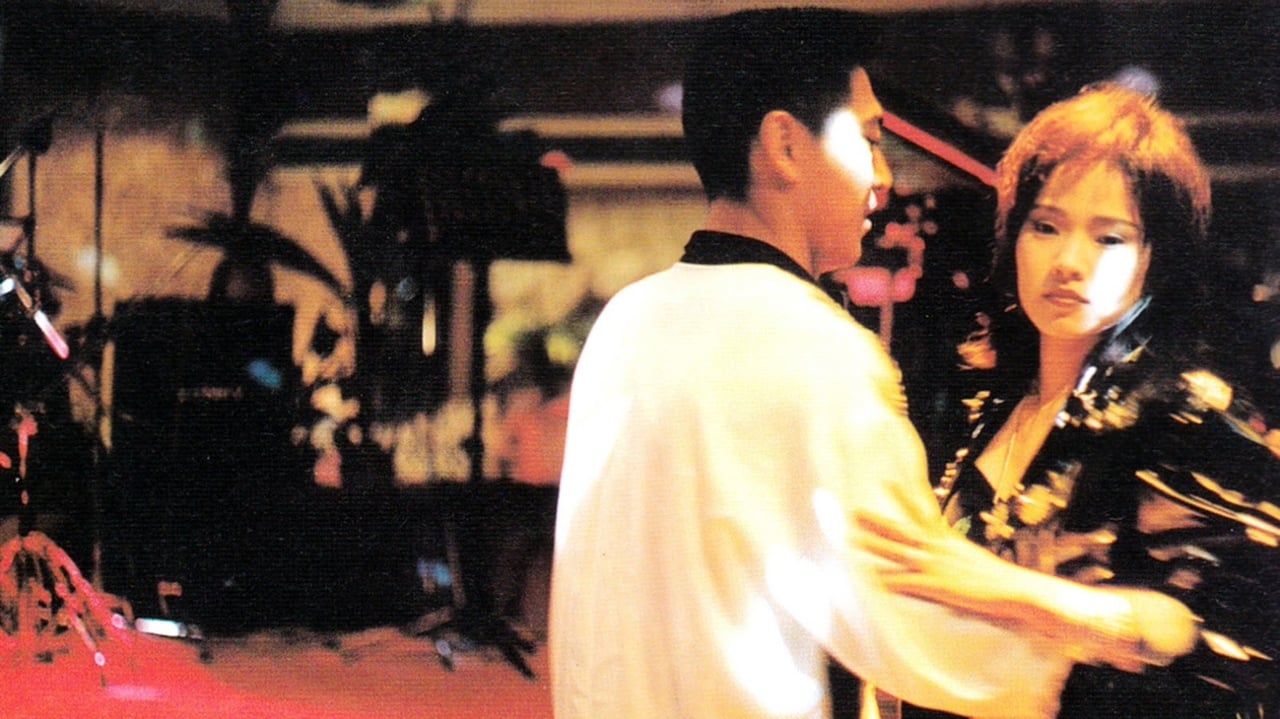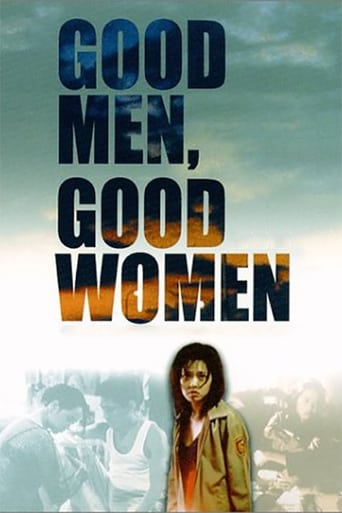

Perfect cast and a good story
... View MoreThis movie was so-so. It had it's moments, but wasn't the greatest.
... View MoreBlending excellent reporting and strong storytelling, this is a disturbing film truly stranger than fiction
... View MoreIt’s not bad or unwatchable but despite the amplitude of the spectacle, the end result is underwhelming.
... View MoreThis movie achieved substantial impact on me, in a good way. Firstly, it's the first Hou Hsiou Hsien film that I have been able to sit through in its entirety. As much as I claim to admire film as art, I will not ever consider giving FLOWERS OF SHANGHAI another attempt. Secondly, I now see Hou Hsiou Hsien as one of the most respectable craftsman in cinema, even more admirable than Zhang Yimou from China or my personal favorite, Wong Kar Wai from HK, and I'll give my reasons. Zhang and Wong take risks with their creations, but they are relatively easy to grasp, and even have some entertainment values. For example, Zhang's TO LIVE is an emotionally heavy drama that spans several generations before, during, and after Cultural Revolution. Even if one doesn't have taste for art films, one could enjoy its sheer melodrama. In the case of Wong, his Chungking Express has a huge cult following. It has a sweet touch of spontaneity that makes it watchable to anyone, although the disconnected storytelling could throw some people off.So Zhang can do intense drama, and Wong can direct spontaneous acting. Hou Hsiou Hsien (or his colleagues Tsai Ming Liang and Edward Yang), however, is of a different breed. His films (that I've seen anyway) are casual but deliberately never ever strive to be interesting. For example, there's no moody music, showy cinematography, or thought-provoking dialogue to spice things up while you watch a 2-minute long take of people walking. Everything is just as indifferent as it is and nothing more; then it's up to us to give it a meaning -- that is the essence of MINIMALISM which define Hou's body of work. Minimalist cinema is by far the most difficult to grasp and sit through (since "nothing happens," some will understandably accuse), and many viewers detest it with a passion. Whether this style is actually effective I do not know, "all I know is this: once I was blind and now I can see." Good Men Good Women is an eye opener for me.In recent years, several well-noted Chinese art house filmmakers have upgraded to generously budgeted blockbusters: Ang Lee with Crouching Tiger, Zhang Yimou with Hero and Flying Dagger, He Ping with Warriors of Heaven & Earth, Fruit Chan with Three Extremes: Dumpling, not to forget Cheng Kaige's special effects fantasy extravaganza The Promise on the way, followed by Wong Kar Wai reportedly to film an American feature The Lady from Shanghai with Nicole Kidman, and words of Hou's Taiwanese colleague Edward Yang to direct an animation produced by Jackie Chan. In such a relaxing trend, will Hou Hsiou Hsien have any surprises for us, or will he continue to explore Taiwan in minimalist glory?
... View MoreIt's cinematic masturbation (my term). That's not the same as intellectual masturbation, mind you. It's not that his films are pretentious, per se. Cinematic masturbation is when the filmmakers have no real desire to share their ideas, thoughts, and motives with the audience. It's all done for their own satisfaction. This is opposed to most other filmmakers, who practise cinematic intercourse, by which they call for the audience to participate in their films emotionally and/or intellectually. Hou's not the only cinematic masturbator. Jean-Luc Godard is another one, though nowhere near the level of Hou. I love Godard, but he has a tendency not to let his audience in on what his motive is (and, yes, artists, filmmakers most of all, should have a motive), especially in certain periods of his career. Tarkovsky's Mirror is another maturbatory film - it's far too incomprehensible to anyone who's not Tarkovsky. This is definitely a value judgement. Masturbation, especially on film, is extremely narcissistic. Frankly, it's unfair. Art is primarily for the audience, not the author. Otherwise, there is no point in it. Take Good Men, Good Women. It's not a bad movie, really. Certainly not Hou's worst. Its main claim to greatness is its excellent cinematography, with some sections in a high-contrast black and white and others in brilliant color. Hou also decides to move his camera a bit and film from different angles. He's finally caught up with D.W. Griffith, although he still falls back on his favorite compositions again and again. The narrative is often great - there are several great individual scenes - but it's ultimately too difficult to follow, which is the exact same complaint I had of my (currently) favorite Hou film, City of Sadness. The plot of Good Men, Good Women revolves around the life of a famous Taiwanese actress (a real person; the film is dedicated to her) and, in the more modern section of the film, an actress who is apparently going to play this former actress in a film about her life (her story is broken into two different time periods). This made sense after I read up on it, but it was really confusing when I was watching it. I assume the same actress played both parts. It's confusing because Hou doesn't want to stress anything: characters are introduced with their backs to us or when they're in shadows. How does he really expect us to recognize and latch onto his characters? He just doesn't care. No, that's not it. It's that he doesn't want us to do so: some pretentious notion that a confusing movie is an artistic one. If I were to see this film again, I might find it better. It's still cinematic masturbation. If the audience, after reading up on it or seeing it several times, then understands it, well, it only becomes mutual masturbation. Satisfying, but wouldn't you much rather be f*cking?
... View MoreA film about time and isolation and loss on a personal level, and on a national level, too; the Taiwanese patriots in the film-within-a-film cannot even speak Chinese--Taiwan having been a Japanese colony since 1895--so they are strangers to the motherland and strangers when they return home. The personal story glides seamlessly into the political. Endlessly moving, and only slow if you cannot feel Hou's deep compassion and depth of understanding. Why is this film maker not celebrated everywhere?
... View MoreIt seems that director Hou has failed dealing with big ideas. This movie is too quiet and too emotionless. His early movies are much better with small everyday facts.
... View More